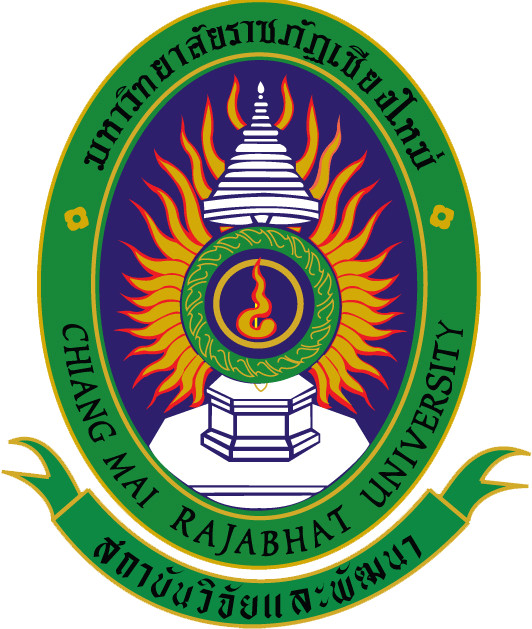
ระบบสารสนเทศงานวิจัย สถาบันวิจัยและพัฒนา มหาวิทยาลัยราชภัฏเชียงใหม่
Research Information System(RIS)
รูปแบบการจัดการเรียนการสอนตามหลักปรัชญาของเศรษฐกิจพอเพียง ในสถานศึกษาขั้นพื้นฐานในจังหวัดเชียงใหม่
ผู้ช่วยศาสตราจารย์ ดร.จักรปรุฬห์ วิชาอัครวิทย์
คณะครุศาสตร์
คำสำคัญ :
เลขทะเบียน :
452-58-EDU-NRCT
บทคัดย่อ
การวิจัยเชิงคุณภาพเรื่องนี้มีวัตถุประสงค์ เพื่อศึกษาและพัฒนารูปแบบการจัดการเรียนการสอนตามหลักปรัชญาของเศรษฐกิจพอเพียงในสถานศึกษาขั้นพื้นฐานในจังหวัดเชียงใหม่ ดำเนินการวิจัย 3 ระยะคือ ระยะที่ 1 การพัฒนารูปแบบที่คาดหวัง เพื่อศึกษาองค์ประกอบที่สอดคล้องกับกฎหมายและนโยบายที่เกี่ยวข้อง ระยะที่ 2 การพัฒนารูปแบบที่เป็นไปได้ โดยใช้วิธีกรณีศึกษาในสถานศึกษาขั้นพื้นฐาน จำนวน ๕ แห่ง เพื่อศึกษารายละเอียดของรูปแบบที่เป็นไปได้ตามบริบทของสถานศึกษาในจังหวัดเชียงใหม่ ระยะที่ 3 การพัฒนารูปแบบที่เหมาะสมโดยวิธีตรวจสอบซ้ำกับกลุ่มเป้าหมายเดิม ผลการวิจัยมี สรุปได้ดังนี้ 1. ด้านการพัฒนาหลักสูตรการจัดการเรียนการสอนและการวัดประเมินผล พบว่า การจัดกิจกรรมการเรียนรู้ในแต่ละกลุ่มสาระการเรียนรู้ จะเน้นการเรียนรู้ให้ผู้เรียนได้คิด วิเคราะห์ ถึงรากฐานสำคัญของหลักปรัชญาเศรษฐกิจพอเพียง และเรียนรู้จากการปฏิบัติจริง และมีการวัดผลและประเมินผลตรงตามแผนการจัดการเรียนรู้ มีการกำหนดเครื่องมือวัด วิธีการ และเกณฑ์การประเมินตามหลักปรัชญาเศรษฐกิจพอเพียง ซึ่งส่งผลสัมฤทธิ์ทางการเรียนของนักเรียนในภาพรวมสูงขึ้น 2. ด้านกิจกรรมพัฒนาผู้เรียน พบว่า 2.1 การจัดกิจกรรมลูกเสือ เนตรนารี และยุวกาชาด ได้นำหลักปรัชญาเศรษฐกิจพอเพียงไปใช้ในกระบวนการต่างๆ อย่างกลมกลืน ยึดหลักความมีเหตุผล และความพอประมาณ 2.2 กิจกรรมส่งเสริมการประหยัดและอดออม มีการปฏิบัติอย่างจริงจังและส่งผลต่อการดำเนินชีวิตของครู และนักเรียน รวมทั้งขยายผลไปสู่ชุมชนด้วย 2.3 กิจกรรมส่งเสริมความคิดริเริ่มสร้างสรรค์ มีการจัดกิจกรรมการเรียนรู้ให้นักเรียนมีจิตอาสาและการดำเนินวิถีชีวิตที่พอเพียง 2.4 กิจกรรมสร้างระบบดูแลช่วยเหลือนักเรียนมีการดำเนินการที่ได้ผลเป็นอย่างดี มีกิจกรรมการเยี่ยมบ้าน มีเครือข่ายผู้ปกครอง มีการแลกเปลี่ยนข้อมูลระหว่างครูกับผู้ปกครอง และกิจกรรมเข้าค่ายคุณธรรม การนำหลักปรัชญาเศรษฐกิจพอเพียงไปใช้ในการจัดการเรียนการสอน ตามหลักปรัชญาเศรษฐกิจพอเพียง ๓ องค์ประกอบและเงื่อนไข 2 ประการพบว่า ความพอประมาณ ครูส่วนใหญ่ได้บูรณาการหลักปรัชญาเศรษฐกิจพอเพียงในรายวิชาที่สอนที่ปรากฏในแผนการจัดการเรียนรู้ได้อย่างเหมาะสมกับเนื้อหาและระยะเวลา การจัดงบประมาณมีความเหมาะสมกับโครงงาน การจัดแหล่งการเรียนรู้เหมาะสมและเพียงพอกับความต้องการ มีการใช้ทรัพยากรในท้องถิ่นในการจัดกิจกรรมการเรียนรู้ได้ตามอัตภาพ ความมีเหตุผล พบว่า ครูสอนโดยนำแนวคิดและแนวปฏิบัติตามหลักปรัชญาเศรษฐกิจพอเพียงมาใช้ได้อย่างถูกต้อง มีวัตถุประสงค์และเป้าหมายในการจัดกิจกรรมอย่างชัดเจนและมีเหตุมีผล ภูมิคุ้มกันในตัวที่ดี พบว่า มีการจัดทำแผนงาน โครงการ กิจกรรมที่สามารถปฏิบัติได้จริง สอดคล้องกับวิถีชีวิต มีการกำกับ นิเทศ ติดตามและประเมินผล เพื่อป้องกันความเสี่ยงและความเสียหายที่จะเกิดขึ้น ครูเป็นแบบอย่างที่ดีในการลดค่าใช้จ่ายที่ฟุ่มเฟือย การประหยัดพลังงาน การอนุรักษ์และพัฒนาสิ่งแวดล้อม วัฒนธรรม และภูมิปัญญาไทย มีการถ่ายทอดองค์ความรู้ซึ่งกันและกัน มีกิจกรรมเพื่อการเพิ่มรายได้ ลดรายจ่าย และการนำหลักปรัชญาเศรษฐกิจพอเพียงมาปรับใช้ในชีวิตประจำวันได้อย่างหลากหลาย เงื่อนไขความรู้ พบว่า ครูและผู้เรียนเกิดความรู้ ตามแนวคิดและการปฏิบัติตามหลักปรัชญาเศรษฐกิจพอเพียง สามารถนำความรู้มาบูรณาการในการจัดการเรียนรู้ การจัดทำโครงงาน และเกิดการเรียนรู้วิชาการต่างๆอย่างรอบด้าน สามารถนำความรู้ที่ได้รับไปใช้ในชีวิตประจำวัน นำไปประกอบอาชีพ และเผยแพร่ความรู้สู่ชุมชนอย่างต่อเนื่องอย่างเป็นรูปธรรม เงื่อนไขคุณธรรม พบว่า ครูเป็นแบบอย่างที่ดีด้านคุณธรรม วัฒนธรรม และการรักษาสิ่งแวดล้อม ภายในโรงเรียนและชุมชน ทำให้ชุมชนเกิดศรัทธาและส่งผลให้เกิดการพัฒนาสังคมอย่างยั่งยืน
Abstract
The objectives of this qualitative research were to investigate and construct a model of learning management based on the Philosophy of Sufficiency Economic in Schools for Basic Education in Chiang Mai Province. The study was composed of three phrases, Phrase 1: The expected model was constructed to identify the factors related to relevant laws and policy. Phrase 2: The feasible model was constructed through a case study in 5 schools for Basic Education in Chiang Mai which was to find all aspects of the model in the school context. Phrase 3: The appropriate model was improved by a re-checked technique with the same groups. The findings were: 1. On curriculum development, learning management and evaluation, it was found that learning activities were focused on thinking skill, analytical thinking to the basic principle of the Sufficiency Economic Philosophy, and learning by doing. Learning measurement and evaluation was linked with learning plan in the instrument, methods and criteria to the Sufficiency Economic Philosophy. Those also helped to upgrade the level of students’ achievement. 2. On learner development activities, it was found that:- 2.1 The activity management of Boy Scout, Girl Guide and Youth Red Cross were appropriately applied in learning processes with the principle of the Sufficiency Economic Philosophy in terms of reasoning and sufficiency. 2.2 The activity of saving enhancement was carefully applied to teachers’ and students’ ways of living which also further expanded to school community. 2.3 The activity of creative thinking was enhanced for students learning in how to be service minded and living sufficiency. 2.4 The activity of forming the system for students’ watch and support was successfully done. Those activities were home visiting, a parent-teacher networking, and a moral camping. The application of the Sufficiency Economic Philosophy in learning and teaching in 3 factors were: On the aspect of adequacy, most teachers appropriately integrated the principle of the Sufficiency Economic Philosophy into their lessons in learning contents and learning period. Budget allocation was suitable for the working project. Learning resources were properly and adequately served their needs, and local resources were also applied to their potentiality. On the aspect of reasoning, the teachers have precisely and reasonably applied the Sufficiency Economic Philosophy principle and practice in their teachings in terms of objectives and goal of learning activities. On the aspect of self-protection, plans and projects were launched for practical activities related to their ways of living. The follow-up activities were applied to supervise and evaluate, and to protect all the risks and damages occurred. The teachers also behaved as a role model in money and energy savings; environment, culture and Thai wisdom preserve and improvement. The activities of knowledge transferring, income increasing, budget decreasing were applied. There was also a various application of the Sufficiency Economic Philosophy principle. On the knowledge condition, the teachers and students gained the knowledge of principle and the practical knowledge of the Sufficiency Economic Philosophy. The teachers were able to integrate those principles to their teaching management, project- based management, and various learning. They were able to apply knowledge in their daily life, occupations, and to continuingly and concretely generate the gained knowledge to their community. On the morality condition, the teachers were the role model in their morality, culture and environment preserve in school and their community leading to society admiration and sustainable social development.
ไฟล์งานวิจัย
อยู่ในระหว่างการปรับปรุงเนื้อหา325 15 พ.ย. 2560
สำนักงานคณะกรรมการวิจัยแห่งชาติ (วช.)
196 Paholyotin Rd., Chatuchak, Bangkok 10900
0-2561-2445